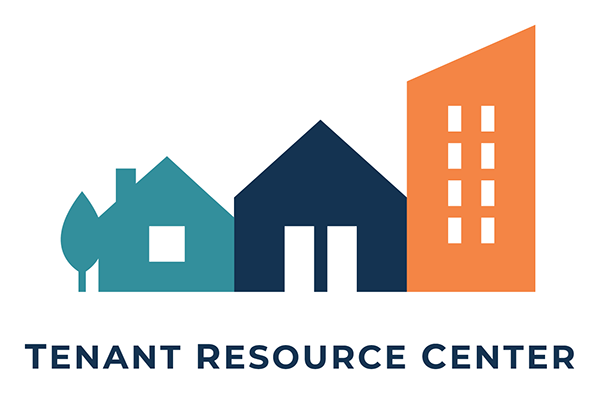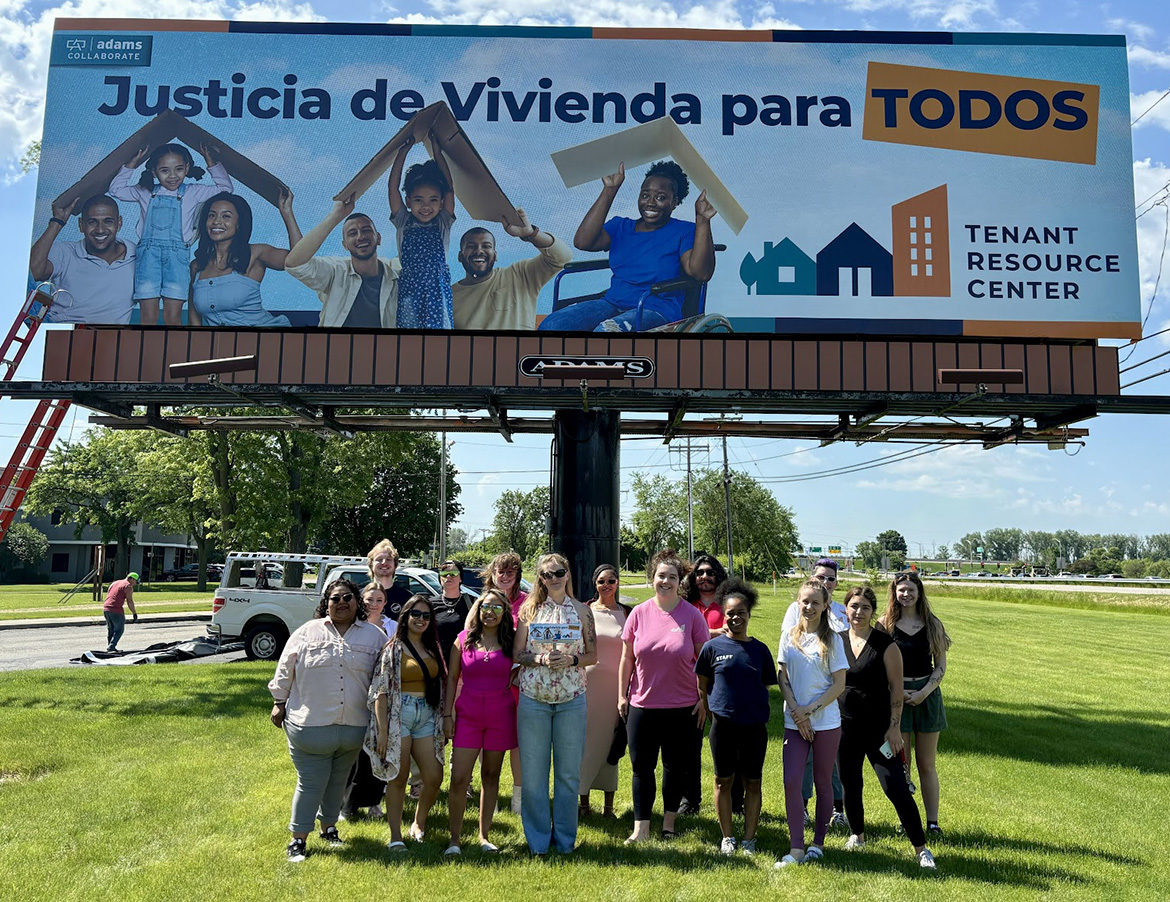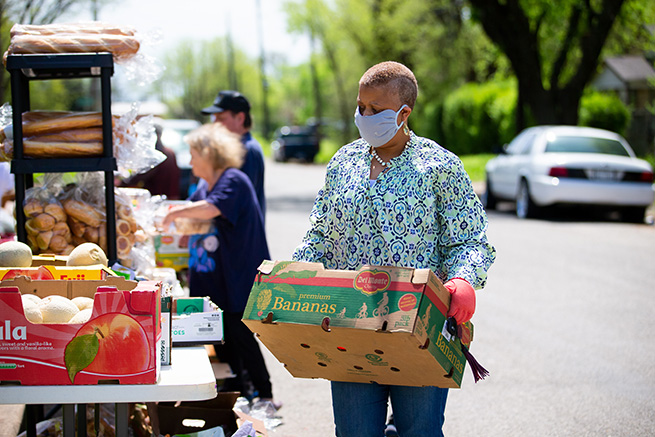
Hello partners and friends!
As temperatures rise and summer schedules pull us in multiple directions, I appreciate you taking a few minutes to read our latest newsletter. We have exciting updates to share, and we are grateful for your interest in our work. I’ll try to be brief!
First, I am thrilled to introduce two new Roots & Wings team members, both of whom will expand our capacity to support our partners and deepen the foundation’s work.
Yvette Gerrans and Sophia Lopez joined us in April, and have hit the ground running. Yvette serves as a program manager supporting Roots & Wings hospital partners, with a focus on families and young children prenatal through three. Sophia is a program associate, supporting our entire program team with a deep dedication to equity and community impact. We are excited to welcome them both!
Our staff’s growth has given us an opportunity to examine and strengthen our internal culture. We’ve imbedded diversity, equity, inclusion and belonging into our ongoing staff curricula. And we’ve learned that by being more open and vulnerable – with our partners and with each other – we can increase our trust and understanding of one another.
Our team’s expansion aligns well with Roots & Wings’ increased work over the past year. Our staff have been busy, and I’m happy to share some quick stats with you to illustrate our progress. In 2023, we supported 273 different nonprofit partners across the United States with grants totaling more than $52 million. Looking across our four key programs, those grants included $28.4 million for Health & Hospitals (54% of our total giving); $9.7 million for Early Learning (19%); $6.6 million for Basic Needs (13%) and $6.1 million for Safety & Justice (12%).
We also supported our partners in a variety of ways “beyond the check.” In 2023, that included things like:
We continue to learn so much from our amazing nonprofit partners. Our profile of the Tenant Resource Center, a Madison based nonprofit advocating for housing justice and thriving communities, is a case study in community leadership, and I encourage you to read it.
Lastly, Roots & Wings has a new and improved website! This new site is designed to better frame our strategy and center the great work of our grantee partners. We will continue to evolve the site over time, and we welcome your feedback now or in the future.
Wishing you a peaceful summer,
Shana

The average rent in Madison, WI has increased more than 36 percent since the beginning of the pandemic, rising from $1,354 per month in 2020 to $1,848 in 2024, according to a recent study in USA Today. And those skyrocketing housing costs are reflective of a worsening trend that has fueled a 12 percent increase in homelessness across the United States over a similar time period.

Fortunately for the thousands of Dane County families facing rising rents and a once unimaginable cost of living, the Tenant Resource Center is only a phone call away. Started in 1980 by a group of volunteer tenant advocates, TRC has evolved into a vital piece of the community safety net in Dane County.
Its mission is to advocate for housing justice and help build thriving communities, a goal they pursue by providing education, centering community partnerships, and empowering individuals to make fully informed decisions about how and where they live. TRC uses the term “housing justice” to describe an economy that meets an entire communities’ needs, not merely the needs of the privileged. A just housing market is one that delivers on the goal of high-quality, safe housing for all, regardless of race, ethnicity, gender, age, or ability. It means the end of housing discrimination, and the pursuit of a community where everyone is housed as they need and as they choose.
According to the Regional Housing Strategy Action Plan, a report released in April 2024 by Dane County, “Today, there is a mismatch between what households can afford and the cost of housing available. There is a need today for 13,300 additional rental units affordable to households at or below 30% of Area Median Income. These are households with annual incomes generally less than $35,000, depending on their household size. There are 18,860 renter households that have incomes under 30% of Area Median Income, but only 5,550 units affordable to them.”
Sadly, the math is not difficult to understand. A limited supply of affordable housing options is outstripped by rising demand. And in that type of unbalanced market environment, lower income households are inevitably squeezed. Those lucky enough to find a rental have little choice but to spend an unsustainably high percentage of their monthly income on housing.

Alliance for a Safe Oregon executive director Jess Marks
“The heart of TRC’s work is our housing counseling,” explains TRC’s executive director Hannah Renfro. “It is about empowering tenants, landlords, and community members to understand what their rights are under the law. Our job, first and foremost, is to lay out options – training, educating, and being present in community to support those who need it most.”
“The work we do is deliberately designed to touch every stage of the rental relationship,” Renfro said. “From the application stage, to moving in and living in a space, knowing what your rights and responsibilities are as a tenant, to moving out, or managing through an eviction notice – we have team members who are fluent at every point on that spectrum.”
For instance, TRC staff and volunteers attend every eviction court hearing and trial to provide housing counseling, mediation of disputes between landlords and tenants, and assistance for back-owed rent and utilities. When needed, they also connect tenants with free legal representation through a program called Eviction Diversion and Defense Partnership. EDDP seeks to disrupt the power imbalance between landlords and tenants by challenging practices that are harmful to tenants and improving the likelihood of housing stability for the renter.
Renfro practiced law for nearly two decades before joining the TRC board as a volunteer in 2020. She soon found herself immersed in the work at an ever-deeper level, compelled by the urgency of community-wide needs. In 2021 she joined TRC’s staff as associate director, and by March 2023 she assumed the role of executive director.
Her attraction to housing work has its roots in lived experience, Renfro explained. “I grew up with lots of financial insecurity and housing trouble. Dad was a teacher, and my mom grew up in Kentucky in one of the poorest counties in the country,” she said. “They divorced when I was a kid. We never experienced true homelessness first-hand, but we moved multiple times a year, and we were evicted several times. There was always worry. Things never felt easy.”
While finding just solutions to Dane County’s widening wealth gap is challenging and often controversial, Renfro says there is one fact that all sides agree on: More — LOTS more — affordable rental inventory is desperately needed in Dane County.
In the Madison Metro Area more than 50% of residents are housing cost burdened – meaning they are spending at least 30% of their income on housing. To no one’s surprise, Renfro and her staff are seeing a dramatic, corresponding rise in eviction rates. In 2023, Dane County landlords sought evictions in nearly 2,500 cases, according to EDDP data. That’s a 45 percent increase over 2022, and more than three times the number of cases filed in 2021, according to data compiled by the partnership.
Evictions are often most disruptive to families with children, a reality highlighted in another recent report from the EDDP team: “The structure of the eviction court system conceals one of the most vulnerable demographic groups: children. It is estimated that from 2007 to 2016, 2.9 million children faced eviction filings annually, according to a 2023 study linking national eviction data with US Census Bureau statistics. Locally, in Dane County, using EDDP intake data, we find that children are similarly impacted. Nearly half (49%) of all eviction court cases in 2023 and Quarter 1 of 2024 involved at least one child in the household, with TRC reporting that 1,069 children faced eviction during that time period in Dane County.”
To assist those families and children in their time of crisis, TRC’s 29-person staff provides bilingual services (English and Spanish) at eviction court, in community, through referrals, and at the TRC office. They connect with every person who has an eviction filing to provide information and resources and help them navigate what can be a very confusing court process.
Renfro explained that the general operating support grant provided by Roots & Wings has been integral to the success of the eviction diversion program and other TRC priorities. “The flexibility of Roots & Wings’ investment has allowed us to help thousands of individuals and families through our EDDP initiative,” Renfro said. “But Roots & Wings also gave us a capital grant that was instrumental in helping us move from the Social Justice Center and into a newer, bigger space. That move has been a game changer.”
The new TRC office, located at 2510 Winnebago Street in Madison, provides more privacy for community members needing to discuss personal rental concerns. It also has a dedicated space for eviction court-involved tenants to attend initial court hearings virtually, as well as a larger waiting area, easier access to public parking, and a large conference room for meetings and trainings.

TRC staff getting the word out in Madison, Wisconsin
The new TRC facilities couldn’t have come at a more opportune time for staff and clients alike, because all signs point to more difficult economic times ahead. The City of Madison recently forecast a $27 million deficit for 2025, and warned that without any action, that number could grow to more than $60 million by 2029. That means property tax increases may be coming soon, which is expected to push rents even higher.
In 2023, TRC helped disburse $8 million in rental assistance to tenants across Dane County, federal support made available through federal Emergency Rental Assistance. With those ERA dollars due to expire in September 2025, Renfro and her team are already beginning to think creatively about how to fill the gaps. Among their plans: more short-term case management and more hands-on involvement at eviction court to try and prevent worst-case outcomes.
“We have developed proposals for what our team needs to look like after those ERA dollars expire,” Renfro shared. “There is no scenario under which we will have $8 million in rental assistance in 2026. So, we have to be ready to pivot and think in new and creative ways.”
Despite the pressure, Renfro somehow manages to balance current challenges with a palpable sense of hope for a brighter future in Dane County. “Many of those opposed to the idea of creating more affordable housing are victims of the bubble we live in,” she said. “Folks who dig their heels in are usually so far removed from the problem that they can’t see, or don’t understand, the root causes. But the reality is many of our neighbors are one piece of bad luck away from a crisis. An eviction can come because you were $75 short on your rent, or you had a $500 car repair, or you miss your court date because you had to work.”
“I constantly remind myself that Madison is a community where solutions do exist if we can learn how to think creatively and push harder toward equity,” she said. “There are fewer than 300,000 people here. There is a very large population of highly educated community members associated with a world-renowned university. There are an abundance of nonprofits in Dane County. The average home price is $435,000. Clearly there is enormous wealth and resources in the community. We just need to remind ourselves that it is possible to solve for this problem.”

New team members Yvette Gerrans (left) and Sophia Lopez
Roots & Wings is excited to announce the arrival of two new team members who will greatly expand the Foundation’s capacity to serve and support our growing network of grantee partners.
Yvette Gerrans joined in April as a program manager, working alongside Roots & Wings’ hospital partners with a particular focus on young children and their families in the prenatal through three-year-old period. She is passionate about helping children have the best start in life, supported by their families and communities. A public health professional with more than three decades of experience, Yvette started out as a pediatric nurse, and has spent most of her career in global health – focusing on strategy, systems change, primary health care, and maternal child health. She has held positions at Deloitte, PATH, the Gates Foundation and King County Public Health. Outside of work, Yvette loves to cook and eat delicious (but not fussy) food, and travel with her partner and two mostly-delightful children.
“I’m so pleased to join the Roots & Wings team, as we do our best to make the world more just and kind through trust-based philanthropy in support of children and families,” Yvette said. “With our partners leading the way, we are improving the lives of children during the critically-important early years, mitigating the effects of brokenness that we all encounter as humans and building on the relationships and strengths in families and communities. To me, that’s a great reason to come to work every day!”
Sophia Lopez also started in April, and brings a mix of philanthropic and nonprofit experience to her new role as a program associate for Roots & Wings. In her new role, Sophia is supporting the Foundation’s expanding program team, driven by a deeply held dedication to equity and community impact. Previously, she supported grantmaking by the Impact and Learning team at Seattle Foundation and worked in program management at African Community Housing and Development. Outside of work, Sophia finds joy in her reading list and cooking for her loved ones. “As a program associate, I have the unique opportunity to support all Roots & Wings’ issue areas and partners,” Sophia said. “I am so inspired by the leadership and significant impact our partners demonstrate daily, and I strive to contribute to an environment that makes a meaningful difference for the children, families, and communities we are serving.”
“We are so happy to have Sophia and Yvette on board, and grateful for the experience they bring to our team,” said executive director Shana Dall’Osto. “Roots & Wings’ trust-based approach means that our team works hard so that we can reduce the burden on our nonprofit partners. Yvette and Sophia will be an essential part of these efforts moving forward.”
Finally, a few links of note to some of what the Roots & Wings team is reading, tracking, and learning. Feel free to let us know if you have a report, news story, event, or other information that you’d like us to share with our growing partner network.
Protect and Redirect: America’s Growing Movement to Divert Youth Out of the Justice System
This five-part series from March 2024 highlights critical lessons for advocates and system leaders interested in expanding and improving the use of diversion in youth justice, including how to address disparities in diversion; best practices for diversion; using data to maximize success in diversion; and effective messaging to promote diversion.
Child Care at a Standstill: Price and Landscape Analysis
Understanding the child care landscape is a crucial first step toward advocating for an equitable, accessible and affordable child care system. This annual report from the Child Care Aware of America assesses national, state, and regional trends in child care through 2023 data.

Firearm Violence: A Public Health Crisis in America
For the first time ever, U.S. Surgeon General has issued an advisory officially recognizing firearm violence as a critical public health crisis. The report outlines the devastating health impacts of firearm violence across the country, noting that while firearm violence is still near record high rates, it’s been particularly deadly among children and adolescents. Since 2020, firearm-related injuries have been the leading cause of death for youth ages 1-19, surpassing motor vehicle crashes, cancer, and drug overdose and poisoning. Surgeon General Vivek Murthy explains the crisis and his report in this short video.
Confronting America’s Maternal Health Crisis
In June 2022, Vice President Kamala Harris unveiled the Administration’s Blueprint for Addressing the Maternal Health Crisis, a whole-of-government effort to combat maternal mortality and morbidity. Its focus has been on reducing disparities in maternal health outcomes and improving the overall experience of pregnancy, birth, and postpartum for all women in the United States. Harris recently announced some of the Blueprint’s key accomplishments, including a National Maternal Mental Health Hotline, which has connected nearly 38,000 individuals to free, confidential, 24/7 support. They’ve also invested in training nearly 2,000 providers on how to screen, assess, treat, and refer for maternal mental health and substance use disorders so that pregnant and postpartum women can get the care they need when they need it. Read the plan and more about the progress to date.

Empty Shelves, Long Lines in Wisconsin Food Pantries
These are challenging times for food pantries. In interviews with nearly a dozen food pantry administrators from the Madison area, as well as public health officials and representatives of statewide organizations, all say the same thing: long lines, empty shelves and a diminishing food supply are becoming the norm, locally and across the county. Read the full article in the Wisconsin State Journal (subscription required).
The Madison Neighborhood Indicators Project
The Madison Neighborhood Indicators Project (NIP) is a tracking system designed to follow communities’ wellness over time. The NIP aims to support better understanding of the changes within Madison communities. The use of the indicators along with local knowledge and other informational resources can help all Madison communities thrive. Click here to link to the interactive map and learn more about this important project.
